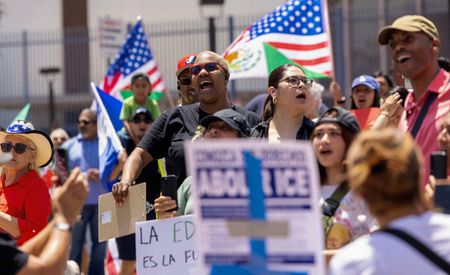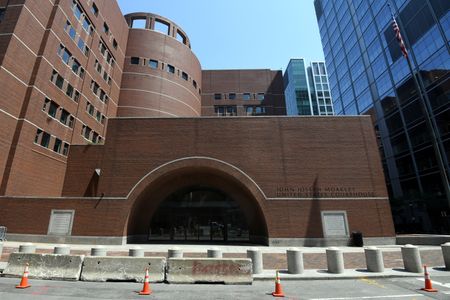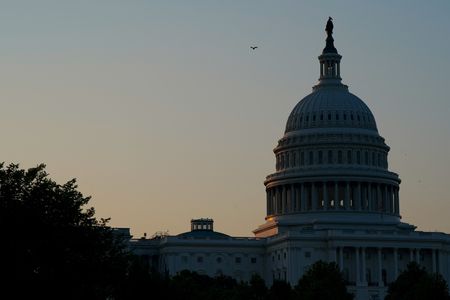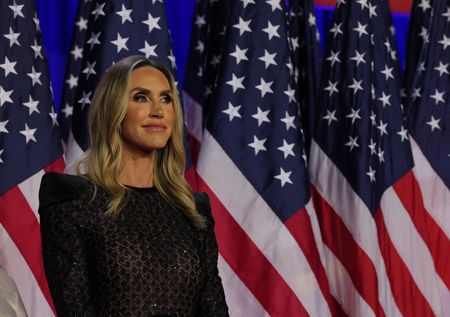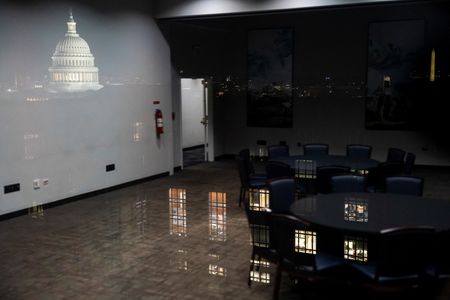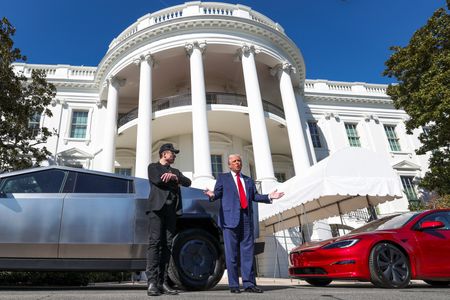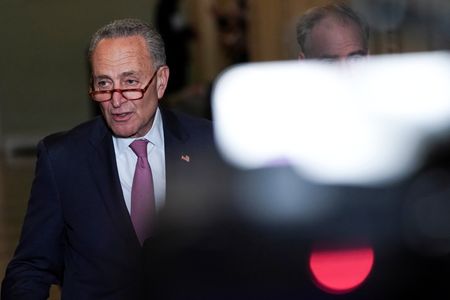By Pete Schroeder
WASHINGTON (Reuters) – Michael Barr, the second person nominated by Democratic President Joe Biden to be the Federal Reserve’s Wall Street cop, looked to be on a path to confirmation after testifying before the Senate on Thursday.
Barr, who served as a senior Treasury Department official under Democratic President Barack Obama, received some skeptical questions from Republican lawmakers.
But there was little indication of any concerted effort to sink his candidacy, and moderate Democrats appeared supportive of him.
Testifying before the Senate Banking Committee, Barr struck a measured tone on a wide range of issues, including financial risk from climate change and the proper regulation of cryptocurrencies, while vowing to take a holistic view on the overall state of bank regulation in the United States.
He emerged from the hearing in a stronger position than Sarah Bloom Raskin, Biden’s first nominee for Fed supervision vice chair, who withdrew her nomination after Democratic Senator Joe Manchin refused to back her.
Manchin opposed Raskin in large part due to her past comments suggesting financial regulators should play an aggressive role in helping transition the economy to using cleaner forms of energy.
When pressed on the climate issue on Thursday, Barr insisted the Fed had “important but quite limited” powers, which are focused on assessing the risks banks might face from climate change, as it would any other looming concern.
“I think the Federal Reserve … should not be in the business of telling financial institutions to lend to a particular sector or not to lend to a particular sector,” he said.
Barr, currently a law professor at the University of Michigan, has already drawn support from moderate Democrats, as well as progressives anxious to ramp up scrutiny of Wall Street after what they say was regulatory easing under Republicans.
At the Treasury, Barr was a central figure in the drafting of the 2010 Dodd-Frank financial reform law, which established a range of safeguards following the 2008 financial crisis.
Barr on Thursday faced some skepticism from Republicans, who repeatedly noted that he vocally opposed a 2018 bank deregulation measure that several moderate Democrats supported.
Barr said he had concerns with some aspects of the law but supported one of its main principles: creating a tiered regulatory environment for banks, with the strictest rules reserved for the largest firms.
On cryptocurrency, Barr said the technology has “some potential for upside” but that stablecoins in particular could pose “financial stability risks” if customers believe they are more reliable than they are in reality.
Barr previously advised and served on the boards of several crypto and fintech firms, but said at Thursday’s hearing that, if confirmed, he would not work in the financial sector for four years after leaving government.
Barr would fill the remaining vacancy on the Fed board and take on a broad agenda that is likely to include revisiting rules that were eased under his predecessor, Randal Quarles, and taking steps to address climate change risk, fintechs and cryptocurrencies.
Progressives, who previously opposed Barr for other Biden administration posts as too moderate, have changed their tune as the Fed’s top regulatory post has been vacant for months.
That wing of the party had seen several favored candidates including Raskin and Saule Omarova, a previous Biden pick for another bank regulator post, flop amid resistance from moderate Democrats.
If confirmed, Barr also will join the Fed as the central bank battles to bring down 40-year-high inflation.
He reminded the panel that he is not an expert in macroeconomics but said inflation is far too high and that he would be “strongly committed” to bringing it down to the central bank’s 2% goal.
“If the Federal Reserve is getting its job done right, the economy is working for everybody,” Barr said as he noted that the task to bring inflation down will be hard to achieve.
(Reporting by Pete Schroeder and Lindsay Dunsmuir; Editing by Michelle Price, Leslie Adler, Bill Berkrot and Jonathan Oatis)


